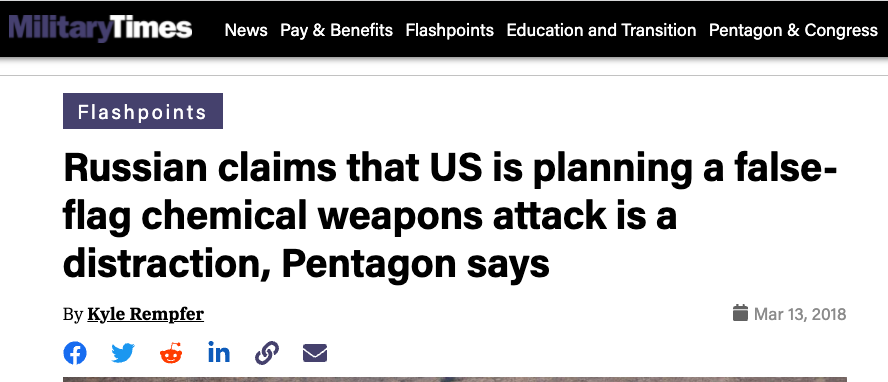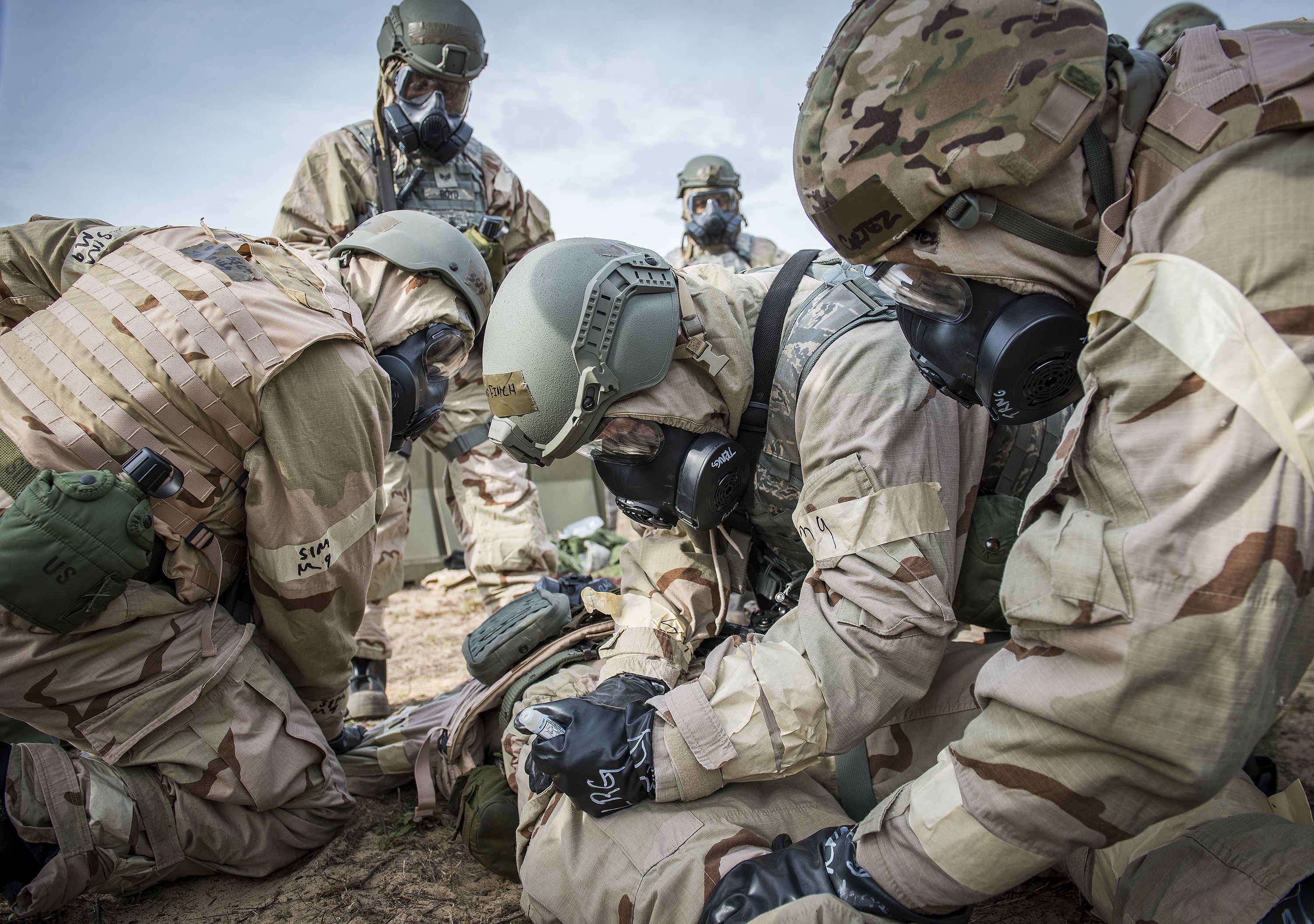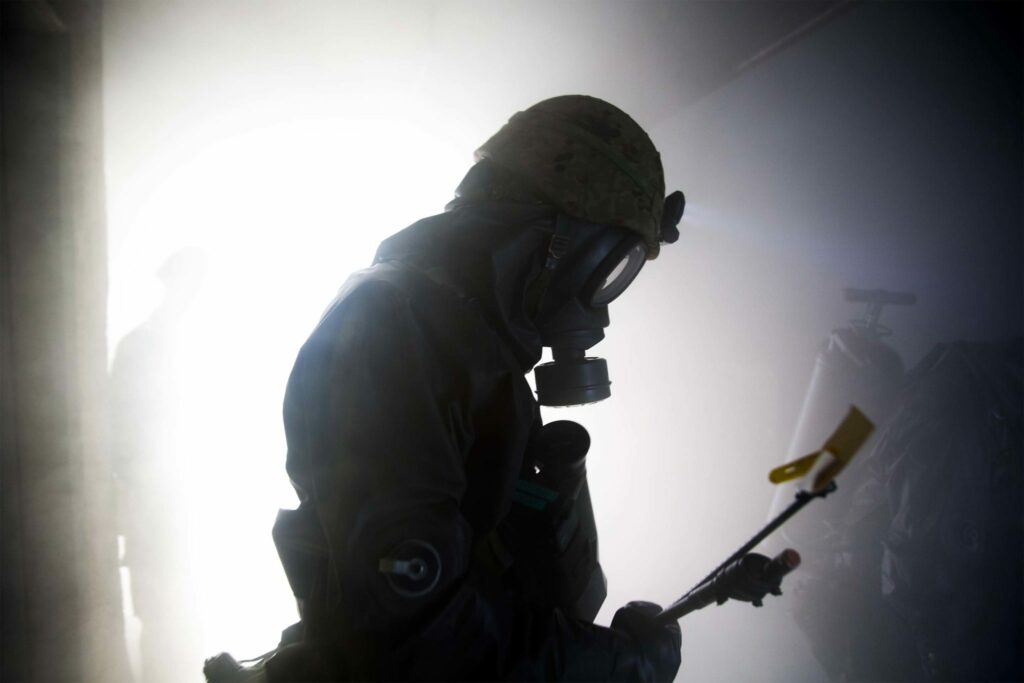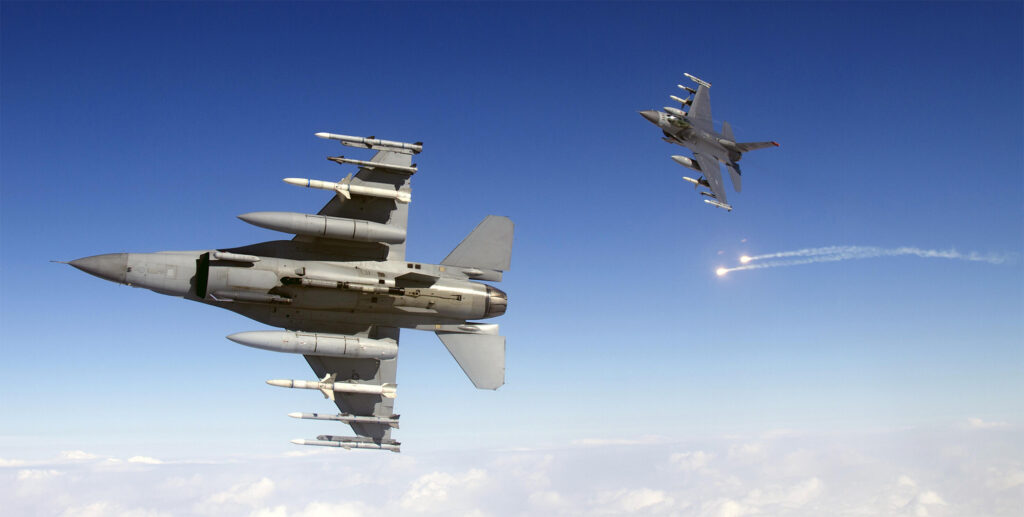Defense officials are now warning that Russia may resort to using chemical or biological weapons in Ukraine, following an uptick in Russian disinformation efforts revolving around these sorts of weapons.
Update: White House Press Secretary Jen Psaki has now released a statement regarding the possibility of a Russian chemical weapon attack in Ukraine.
“This is all an obvious ploy by Russia to try to justify its further premeditated, unprovoked, and unjustified attack on Ukraine,” Psaki tweeted Wednesday.
“Now that Russia has made these false claims, and China has seemingly endorsed this propaganda, we should all be on the lookout for Russia to possibly use chemical or biological weapons in Ukraine, or to create a false flag operation using them.”
On Wednesday, Kremlin spokeswoman Maria Zakharova told reporters that Russian forces had discovered American-backed laboratories developing biological weapons on the Russian border, claiming the “urgent destruction of these materials” was part of the nation’s real pretext for its now poorly-progressing invasion of Ukraine.
This is just the latest in a string of reasons Moscow has given for the invasion, including the need to “de-Nazify” the nation’s government—an ironic choice considering Ukraine’s government is led by a man of Jewish faith.
More pressing than the latest bit of theater out of the Kremlin is the concern that this new narrative may be a prelude to a very real chemical or biological attack. These concerns are, unfortunately, born out of historical precedent.
U.S. officials are concerned Russia could be preparing to use chemical or biological weapons in Ukraine after the Russian Ministry of Defense said Ukraine may be planning a false flag chemical weapon attack, an administration official tells @carolelee.
— Ken Dilanian (@KenDilanianNBC) March 9, 2022
In Syria, where Russia’s military has backed Bashar al Assad’s regime in an ongoing civil war, Russian and Syrian forces have been implicated in over 300 separate chemical weapon attacks, many of which have been against civilian targets. Often, these attacks came coupled with Russian statements about forthcoming “false flag” attacks, which allow them plausible deniability when reports emerge.

That story was published in 2018. Now, it’s starting to look a lot like Russia is preparing to use the very same playbook in Ukraine, first planting the seed of doubt by claiming these attacks will be carried out by those attempting to hurt Russia, and then executing them under a fog of plausible deniability.
#Konashenkov: ????????nationalists delivered about 80 tons of ammonia to Zolochiv settlement near #Kharkov. Residents from there say nationalists teached them how to act in a #chemical attack. Nationalists planning a provocation with toxins to accuse #Russia of using chemical weapons. pic.twitter.com/li4bURU9T7
— Russian Embassy, UK (@RussianEmbassy) March 9, 2022
The United States has accused Russia of assisting Syria in covering up their use of chemical weapons on more than one occasion as well. U.S. representative to the Organization for the Prohibition of Chemical Weapons (OPCW), Kenneth Ward, addressed the issue in a November 2019 hearing.
“The Syrian Arab Republic possesses and uses chemical weapons. For many years, we have listened to the Syrian Arab Republic try to fill this room with falsehoods thinking they can cover up what is going on. Everybody in this room knows what’s going on,” Ward told delegates.
“Unfortunately the Russian Federation has played a central role in this cover-up. Russia and Syria may sit with us here, but they stand apart from us in a fundamental way — they continue to embrace chemical weapons, a truly grotesque residue of the 20th century.”
This issue became more pronounced within international bodies after Russian operatives attempted to assassinate a former Russian military intelligence officer turned British informant named Sergie Skripal on UK soil using a Soviet-era nerve agent known as Novichok. The incident resulted in the expulsion of Russian diplomats from a number of nations, including the U.S. and U.K.
“Before the day was over, it was clear that a front line in a broader international confrontation had opened up and that, in addition to the Syrian crisis, there was now an even more ominous Russian problem,” explained Ward in an article he penned for the Arms Control Association.
Russia was no longer just an enabler of Syria’s use of chemical weapons, protecting it at the OPCW and the UN Security Council; it was itself a perpetrator, signaling to the world that it still illicitly possessed its own dangerous chemical weapons agent.”

Russia has a long history of manipulating narratives surrounding its aggressive foreign policy, and just as the United States repeatedly called out Vladimir Putin’s moves in the lead up to the invasion of Ukraine, it now appears American intelligence has reason to believe the stalled Russian military may resort to weapons of mass destruction as both a means of saving face and as a means to retake the initiative.
A false flag attack using chemical or biological weapons could make Russia’s invasion seem more justified, helping to lessen sanctions and financial penalties from the international community. And with Russia’s massive military force seemingly stuck in a quagmire of mud, poor planning, bad logistics, and incompetence, such an attack could give Russia a renewed advantage.
But it seems the U.S. and other Western governments now hope that by calling Putin’s shots ahead of time, the embattled Russian president may think twice about resorting to a chemical or biological attack.



